Drone Shadows by James Bridle evoke the presence of unmanned aircraft
Life-sized outlines of military drones drawn on the ground to depict their "invisible" presence by London artist James Bridle topped the Graphics category at Designs of the Year 2014 (+ slideshow).
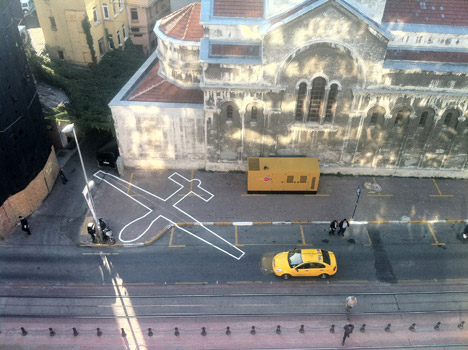
James Bridle's Drone Shadows project features full-scale drawings of unmanned aerial vehicles that carry out surveillance and air strikes, intended to raise awareness of the presence of these secretive aircraft.
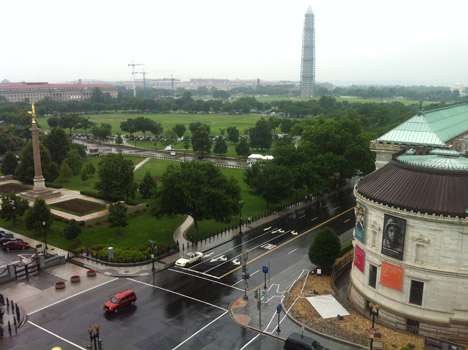
Bridle, who holds a masters degree from University College London in Computer Science and Cognitive Science, created his first drone drawing in 2012 to demonstrate the size of the drones, which most people will never encounter in real life.
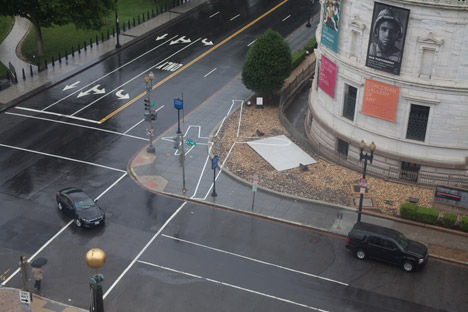
The 1:1 scale image was drawn in the car park of his studio in London. Drone Shadows was subsequently commissioned for exhibitions, festivals and events in London, Washington DC, Istanbul and Brighton.
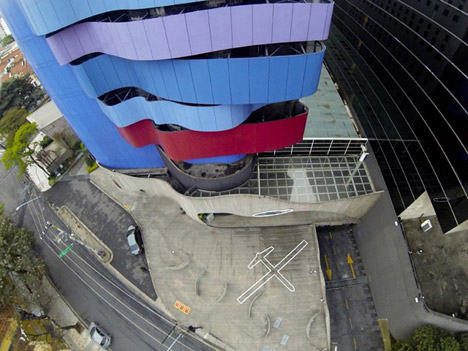
"The drone shadows started as a way to visualise a seemingly invisible technology," Bridle told Dezeen. "Despite their status in the media today, very few people have a strong image of what drones actually are – a strange circumstance in an age of mass media, when we are supposed to see everything."
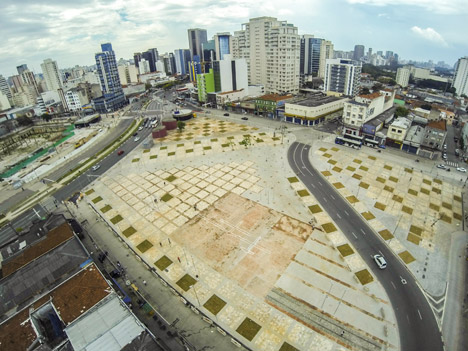
For Bridle, drones represent a tangible aspect of the unseen network of data and computer code that connects people across the world.
"The invisibility of the drone follows the invisibility of many of our contemporary, networked technologies – the drone is shorthand for the internet, for all of our technologically-mediated experiences, as well as being a compelling image of today's endless, borderless wars," said Bridle.
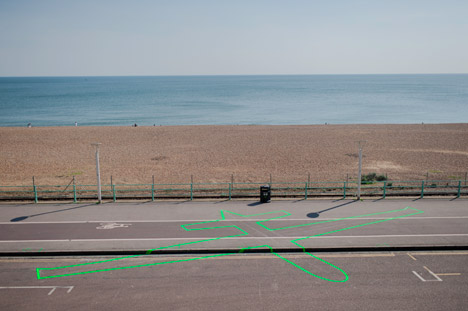
"Drawing the drone is really just a first step in sketching out not the aircraft themselves, but the networks – digital and geographical – which power them, and the political systems which shape and in turn are shaped by them," he added.
The Drone Shadows produced to date have included depictions of different types of aircraft installed in prominent public spaces during festivals and events, including the release of a documentary about covert warfare.
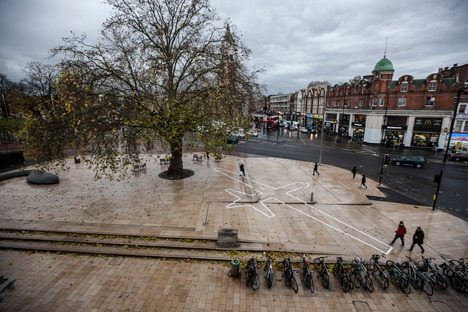
"The standard response to every drone shadow is: 'I had no idea it was so big'," said Bridle. "It's such an obvious, banal reaction, but such an important one in an age of mass visibility, that these instruments remain so unknowable."
As part of a solo exhibition at the Corcoran Gallery of Art in Washington DC, Bridle produced a representation of a Reaper drone that covered part of the pavement outside the museum.
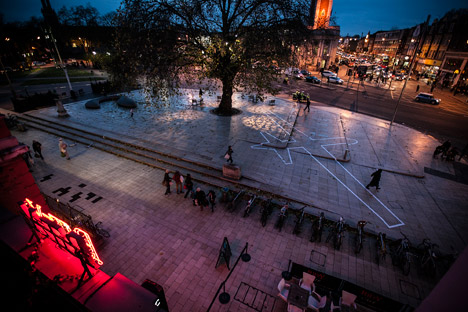
In September last year he was commissioned to create a Drone Shadow at Queensland State Library in Brisbane, Australia, but the project was halted by the state governmental department responsible for arts that claimed it could make visitors to an exhibition of Afghan artefacts at a neighbouring museum uncomfortable.
Bridle has also released instructions outlining how to create your own Drone Shadow in the format of a handbook that can be purchased or downloaded for free from his website.
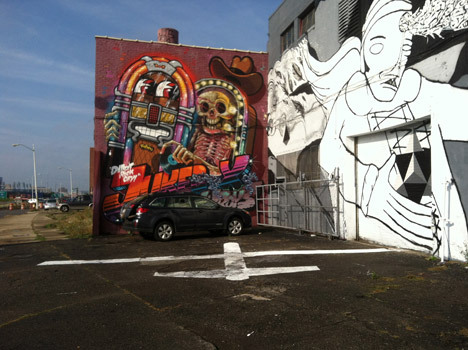
He is continuing to develop imagery relating to drones and their use, including a page on Instagram called Dronestagram that documents sites targeted by drone attacks as seen from Google Earth.
Drone Shadows will compete for the overall Designs of the Year 2014 prize with other category winners including a range of ergonomic chairs by Konstantin Grcic, Zaha Hadid Architects' Heydar Aliyev Center, and a soft piano keyboard by ROLI.
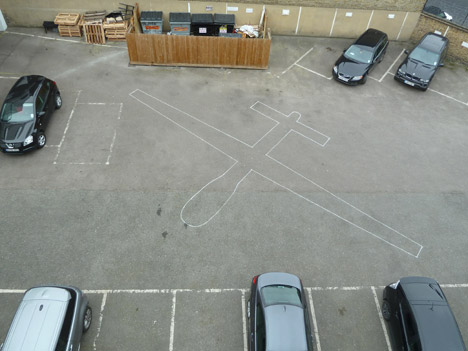
Dezeen is media partner for Designs of the Year 2014, which is organised by London's Design Museum. The overall winner will be announced at St Martins Lane Hotel in London on 30 June.